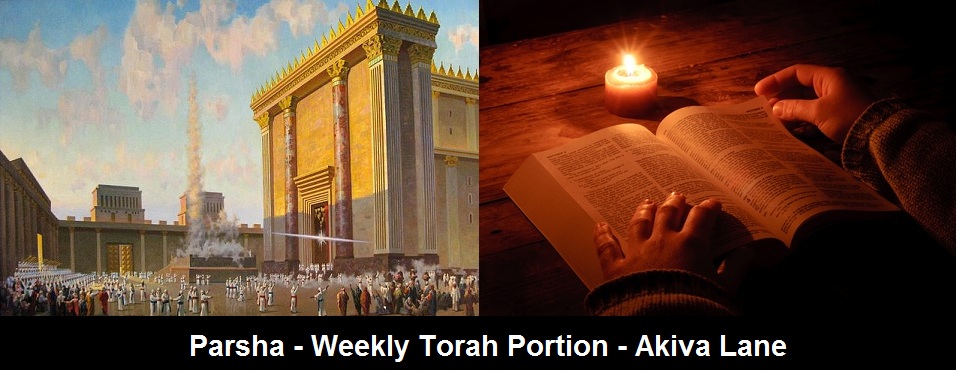
Mattos - Emptiness
"If
a man takes a vow to Hashem or sears an oath to establish a prohibition
upon himself, he shall not descecrate (yachel) his word;
according to whatever comes from his mouth shall he do.”
Numbers 30:3
Two
of the places where the word 'chillul' occurs in hallachah is in
relation to Hashem and Shabbos. We say that a person who
desecrates the name of God is guilty of 'chillul Hashem', and that a
person who desecrates Shabbos is guilty of 'chillul Shabbos'. The
word 'chillul' is usually translated as 'desecration'. Let us
further examine what the concept means, and why it is used in
relation to these cardinal sins.
The word 'challul' literally
means empty or hollow. The Hebrew word 'challil' refers to a
flute because it is a hollow musical instrument. How does the
concept of hollowness and emptiness apply to the Almighty and
Shabbos? Since God is omnipresent, being everywhere, how can
someone's act affect His pervasive presence? Likewise, once
Shabbos begins on Friday evening, it is there until the next
evening. How do we relate the concept of emptiness and hollowness
to the presence of Shabbos, and how might our actions be involved?
By
way of analogy, physics tells us that heat exists everywhere in the
universe. Heat is a measure of the movement of atoms. The
faster they move and collide with each other, the greater the
heat. Heat is reduced when atoms slow down and collide less
frequently.. Since atoms exist everywhere in the universe, in
greater or lesser density, moving around faster or slower, heat exists
everywhere in varying degrees. On the surface of the sun
the atoms have tremendous energy and are moving and colliding very
fast, and so it is hotter than in the North Pole where the atoms are
much more sluggish. Heat is everywhere, but its presence or
preponderance varies from place to place.
Even though we say
that Hashem is everywhere, perhaps the analogy applies to Hashem as
well, and He can have a greater or lesser 'presence' in different
places. Perhaps Hashem's presence is more 'palpable' at the Kosel that
in a den of idol worshippers, though He is present in both places.
Likewise, the spirit of Shabbos obviously exists throughout Shabbos,
but perhaps there is a greater or lesser density of 'shabbos-ness' in
the air in different places and at different times.
The
concept of 'chillul Hashem' or 'chillul Shabbos' therefore confronts us
with the startling idea that perhaps people's actions can affect the
presence and 'density' of Hashem and Shabbos in the world. If we
act in a proper and holy way, we draw towards our locale a greater
presence and 'density' of Hashem and Shabbos, to the extent that this
greater presence can actually be felt and experienced. In a holy
community, where everyone is upright and acts in a G-dly manner, the
feeling of Hashem's presence would be much greater and more
palpable. In the same way, in a place where the spirit of Shabbos
is punctilliously observed, one can feel surrounded by a greater sense
of Shabbos.
On the other hand, if people, God forbid, do acts
that fall under the category of chillul Hashem, the presence of Hashem
is lesssened in that place, and that place is 'emptied' and 'hollowed'
of the Hashem's presence. If people are guilty of chillul
Shabbos, the presence of Shabbos becomes less present, and one would
feel less of the spirit of Shabbos in the air.
An act of
chilllul Hashem has two very important consequences. First, the
lesser 'density' of Hashem's presence in a place makes it easier for
sin and evil to infiltrate. Hashem's presence can serve as a
deterrance to sin. The more 'dense' Hashem's presence is, the
less 'room' there is for bad acts, bad thoughts, and bad people to find
a foothold. But when acts of chillul Hashem lessen Hashem's
presence, people find less resistance externallly and internally to do
bad things and to have bad thoughts. This can become a slippery
slope, with more sin reducing Hashem's presence, in turn making it more
conducive for more sin to occur. It is obviously better when
things move in the opposite direction, when more good acts leads to a
greater 'density' of Hashem's presence, and this can inspires us
to be even better.
A second consequence is that when
Hashem's presence is less, He is less 'there' to help us when we call
on Him in times of trouble and need. If His presence has been
steadily increased over time by a holy community trying to be better
and better, Hashem is more 'there' to help them when they need Hashem's
help when emergencies and troubles happen.
The last 30 years in
America has witnessed a deterioration of moral standards. As a
result, it is possible that Hashem's presence is less than it could
be. As a result, we find less resistance in the air to do things
that are wrong, and feel less of God's presence to inspire us to
greater spiritual heights. This is not a good situation. It
makes us less sensitive to sin and genuine holiness. In addition,
it widens the door to the kinds of evils that plague society in general
and Jews in particular. And if bad events do take place, Hashem
is less 'here' to answer our pleas.
Therefore, we should
redouble our efforts to be involved with actions that result in
'kiddush Hashem', that increase the presence of Hashem around us, so we
can reverse the slippery slope's downward direction, and encourage and
propel ourselves towards higher levels of holiness.
